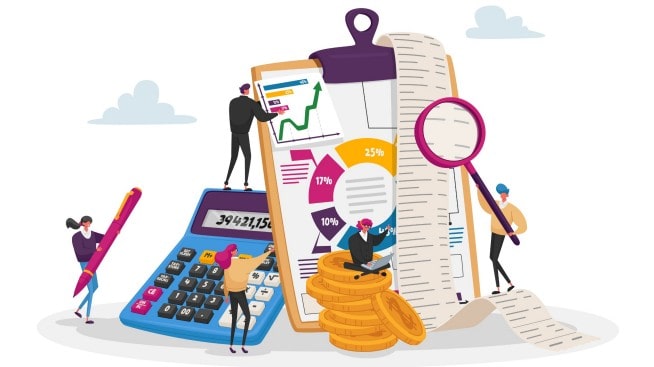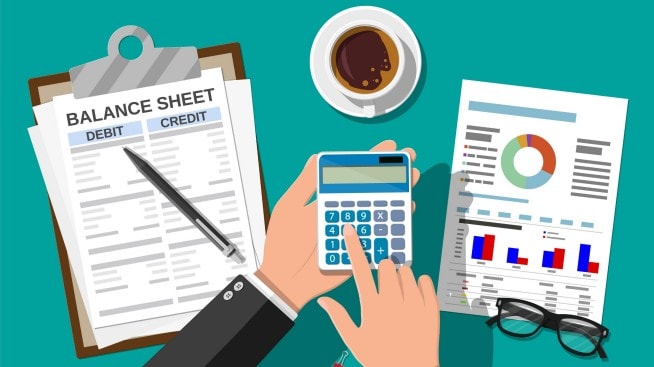Leveraging credit to achieve financial independence

Many of us were told at a young age to save as much money as possible into a retirement account early on so that you can build your savings over time. However, many of us don’t always have the means to be able to save in the ways we want to. Sometimes we’re living paycheck to paycheck, or catching up on sudden medical bills, leaving little left over to save.
So, how is it possible to achieve financial independence given the obstacles you may face?
In this article, you’ll learn about:
- How to leverage your credit
- Why credit is important to achieve financial success
- How proper planning can help you retire early
How to leverage your credit
When things are tight and you don’t have much to save, one way to maximize your credit is to avoid getting dinged for extra fees. Taking preventative measures to avoid further consequences down the line can help you protect your credit or start to build it back up. If you are consistently behind on your payments, you could be facing overdraft fees, interest and a drop in your credit score. If you start building healthy habits, you can start to gain a little more control and unlock future financial opportunities.
When you want to make credit work for you, creating a foundation of healthy habits can help you slowly build your credit, even if it’s not perfect right off the bat. That’s where tools like Chase Credit Journey® come in. You can keep track of your credit score for free day and night, watch it change over time and even receive a personalized action plan provided by Experian™ to achieve your credit score goal.
Additionally, be sure to tap into your credit cards’ benefits and rewards. When you’re strategic about how you use your cards, you may be able to earn points or cash back. Maximize your opportunities to use these perks so that you can make the most of your purchases. Just be sure to check with the card’s terms and conditions so you understand the rewards structure,
Leveraging your credit in these ways can be a game-changer when it comes to carving your own path towards financial independence.
Why is credit important to achieve financial success?
Your credit score isn’t always going to be perfect—and that’s okay! Remember that credit scores are a mirror of your financial behaviors as you go through life, so of course there will be ups and downs. However, your credit score is important when it comes to making financial decisions, such as taking out loans, a mortgage or purchasing your first car.
Your credit score can help or hinder you from having the purchasing power you want, at the time that you need it. For example, if your car breaks down and you need a new one immediately, having a good credit score may help you get approved for an auto loan quickly and with a favorable rate. When you achieve your personal definition of success (whether that's eliminating your debt, saving enough for retirement, having a higher income to debt ratio, etc.), it’s important to continue to stay on a budget and look after your financial well-being. Even when you have the means to make larger purchases or upgrade your lifestyle, remember that you still want to live within your means. Remain diligent about monitoring your credit and careful with your spending.
For example, just because you may have a higher credit limit doesn’t mean you should use all of it. Your credit utilization ratio is an important factor in determining your credit score. If you want to remain financially savvy, keeping your ratio at around 30% or lower is ideal. These small but important adjustments can help you keep your credit score healthy, which can unlock better rates on your loans, credit cards and more. This in turn can save you money over time.
How proper planning can help you retire early
No matter where you’re starting from, you can almost always take small steps towards planning for your future. Rather than think about how much you have to save (and feeling daunted by timeframes), focus on what you can do today. Set realistic, small goals for yourself. For example, start by evaluating which debts are important to pay off first to avoid accruing more interest. Or plan to put away a certain amount of money towards your savings or retirement account each week after budgeting out your remaining funds. It doesn’t have to be a lot!
When you think about retirement, you may need to make some sacrifices early on — that could mean saving your money in your Individual Retirement Account (IRA) or 401 (k) instead of putting that money towards a trip you want to take now. Proper planning means making adjustments that work best for you and prioritizing your goals—where are you willing to cut? Where are you able to make adjustments? What are your non-negotiables?
When possible, think about ways you can live under your means, even if your income goes up over time. Making more money can be beneficial and it can be enticing to spend it right away. Try to avoid “lifestyle creep,” or increasing your living expenses and lifestyle at the same rate as your income increases.
Finally, using resourceful tools like Chase Credit Journey® can give you the insight and encouragement you need to plan your financial future. This free online platform not only provides you with a credit score but features like credit monitoring and credit planning to help you keep track of your score and the factors affecting it. You can use a personalized action plan provided by Experian to take actionable steps towards improving your credit score over time.
Credit’s role in retiring early
Your credit score is a good indicator of how well you’re handling your finances and planning ahead. When you have a good credit score, you can save money by landing lower interest rates on credit cards and loans. Money that you would have otherwise spent on interest charges and fees could go towards your retirement and savings accounts instead.
Some cards may have certain perks and rewards that you can maximize to get the most out of your purchases. For example, if you’re savvy about how you use your credit card, you could earn cash back, receive points to redeem on travel and more. Understanding your buying habits can be helpful as you use your card in the most cost-effective ways, saving you money that you could put towards your future.
In summary
Planning for your future can be scary at first and may come with ups and downs. It’s not always about how much money you have, but how good your credit score is, too. In an episode of the Credit Talk podcast, a show that aims to provide listeners with personal stories about financial journeys, the hosts discuss how important it is to understand how credit works to be financially healthy and the significance of credit when it comes to making financial decisions. A good credit score can make a big difference when you're ready to make important life investments.



